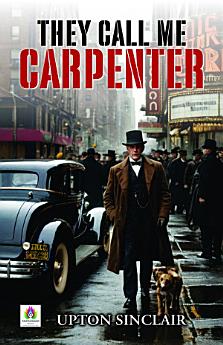They Call Me Carpenter
About this ebook
This isn't merely a tale about a carpenter; it's a vibrant tapestry of working-class struggles that reflects the harsh realities faced by many during this tumultuous period. As Carpenter engages with the colorful cast of characters around him, including skeptical intellectuals and fervent believers, Sinclair masterfully highlights the inherent moral dilemmas that arise in the pursuit of truth and authenticity. The novel not only critiques the societal norms of its time but also deals with questions of identity and the yearning for connection, making it a poignant commentary on the human experience.
Through Carpenter's journey, the reader is invited to explore themes of religion and faith, as he seeks to reconcile the conflicts between his spiritual longings and societal expectations. Sinclair's presentation of religion is multifaceted, showcasing both its comforting aspects and its potential for hypocrisy, provoking readers to reflect on the role of spirituality in their own lives. The resulting narrative is rich in philosophical questions that resonate deeply, pushing readers to contemplate their place within the societal structure and their inherent value as individuals.
They Call Me Carpenter is marked by its unflinching realism and gripping character development, making it a defining work of literary classic status. Sinclair's vivid descriptions of the Chicago setting enhance the sense of urgency and realism, immersing readers fully into the labor struggles and class tensions that permeate the era. As the story unfolds, the reader is engaged in a delicate interplay of interpersonal relationships where the bonds of friendship and animosity reflect the broader societal struggles, further emphasizing Sinclair's mastery in portraying human connections.
Beneath the story’s surface lies a deeper inquiry into spiritual exploration and the quest for human redemption. Sinclair prompts us to consider what it means to truly live a fulfilling life amidst adversity—what it means to find purpose when surrounded by chaos and despair. As Carpenter navigates his existential journey, he embodies the broader struggles of a society searching for meaning in an increasingly mechanized world, highlighting the enduring relevance of Sinclair’s work.
This novel, steeped in the historical context of its time, remains a crucial investigation into themes of social justice and the quest for identity that continue to resonate in contemporary discourse. Upton Sinclair's gritty realism and profound insights make They Call Me Carpenter a compelling read for anyone interested in understanding the multifaceted nature of faith, identity, and the human spirit. As readers immerse themselves in the struggles and triumphs of Carpenter, they are sure to discover a rich narrative that challenges perspectives while encouraging self-reflection and compassion in a divided world.







